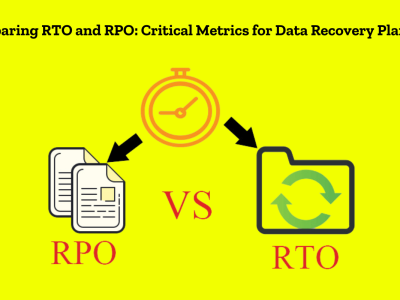IT outsourcing is a rapidly expanding sector of business and a useful option for many organizations. Young startups and large corporations both use outsourcing to its full potential. This strategy aids in cost-cutting or creates a stronger competitive edge. In addition, according to a poll, COVID-19 has disproved the notion that sharing resources physically is a need for building trust in the workplace.
All of these imply that outsourcing will become increasingly prevalent. So, to assist you to comprehend what it is and why you need it, here is your comprehensive reference to IT outsourcing.
What Exactly Is Outsourcing?
Working with outside contractors to handle different business tasks has now become a fairly popular practice, beginning with operational tasks like payroll, inventory management, content production, or recruiting via an employment agency and ending with business process management.
Read more: https://www.dewais.com/services/it-outsourcing-services/
When done properly, this method, which is gaining popularity, enables businesses of all sizes to operate and expand without taking on significant risk or expense.
Forms of IT Outsourcing
- Onshore
It is the process of recruiting experts who live in or close to your city. Keeping everything under control at an affordable price is a wonderful choice.
- Nearshore
It is being outsourced to nearby nations in the same time zone. Such as those involved in nearshore software development in Latin America. You can contact developers more easily if you choose this choice, although it isn’t always lucrative.
- Offshore
It involves outsourcing to a different nation. You can save the most money with this style.
Top Advantages of Hiring Outside IT Staff
- The Worldwide Talent Pool at Your Disposal
Without creating a new department, you may recruit qualified developers to build any kind of product.
- Quickness of Filling the Vacancy
Due to the dynamic nature of the labor market in outsourcing nations, you have a better possibility of finding employment in 2-4 weeks as opposed to spending 2-3 months only on recruiting.
- Enhanced Efficiency
The in-house staff will be pleased with your choice to recruit outsourced workers since the workload will be distributed more equitably, reducing the likelihood of burnout.
- Decreased Costs
You may reduce manufacturing costs by outsourcing to nations with lower expenses of living (which entails reduced pay, operations, and infrastructural costs).
- Flexibility
Your software development team may simply grow without incurring additional costs for renting more offices, acquiring equipment, or purchasing tools.
Risks of IT Outsourcing
When weighing the benefits and drawbacks of IT outsourcing, keep in mind that despite its many advantages, it still has certain issues. However, techniques and measurements support risk mitigation and reassure you that you effectively outsource software development.
The following are some of the most frequent hazards associated with outsourcing IT services:
- No Self-Control
The fact that you have less control over your software development activities is one of the most apparent dangers of outsourcing IT. The majority of contact occurs online, so the amount of control may be far less than you’re accustomed to.
You don’t know what to do? Then you need to contact the professionals: https://www.dewais.com/
- Security Concerns
Your private company data being compromised is one of the most common concerns of IT outsourcing since cyber threats and cybercrime were never eliminated.
- Quality Issues
IT outsourcing concerns are often linked to subpar services. Customers that engage in low-cost labor in third-world nations often experience a variety of problems because the supplied items fall short of their expectations. To reduce these risks, you might implement a quality assurance checklist for projects that are outsourced.
- Cultural and Communication Gap
Working with remote employees may be challenging. Businesses often deal with a variety of difficulties, including time zone disparities and divergent work styles, communication styles, and timeliness.
Who Engages in Outsourcing?
Both large corporations and fledgling startups contract out some of their labor. IBM, Google, and Microsoft employ IT outsourcing to get access to experts with various specialties. Outsourcing has advantages for startups to reduce expenses and grow quickly.
Bottom Line
The phrase “IT outsourcing” now has certain undesirable aspects. Business owners are wary of collaborating with individuals they may never have met personally since they have heard about some instances of failing ventures. However, some businesses operate ethically as well as others that provide poor services or create subpar goods, just like in any industry. The rivalry in the IT industry is increasing, and IT organizations need to provide excellent services to expand.










